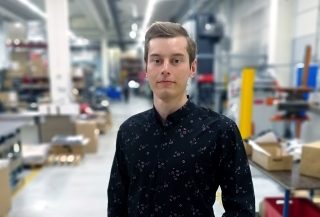Plastic – The Long Road Towards Sustainable Plastic
In my latest blog I talked about the problems caused by plastic. It is an excellent material for many uses, but the waste isn’t treated properly which causes environmental issues. Similarly, asbestos was considered as an irreplaceable material, but the health issues eventually caused it to be banned. The health issues caused by microplastics are still unknown and something undesirable may come up. But could there be an alternative to fossil-based plastic?
Everyone knows or at least should know that we need to get rid of fossil fuels preferably sooner than later. The low costs and lack of alternatives still drive us to use fossil-based plastic. Thanks to the growing concern of the environment, bio-based plastics are researched and developed with an accelerating pace.
Good Intentions or Company Green washing?
Some of the new materials and projects might even be familiar to you. One of the first major bio-based plastic projects was the Coca-Cola PlantBottle. 30 % of the plastic in the bottle was made from sugar cane residue¹. Coca-Cola is also heading towards sustainability by enhancing the recyclability of their packages and using more recycled materials².
Another recent step towards sustainable business was made by Lego that targets to manufacture only bio-based legos by 2030. The first bio-based lego sets were made from a similar sugar cane– based material as the PlantBottle. Lego is also making their packages widely recyclable and investing in renewable energy. ³
The consumer product manufacturer Unilever is also aiming high with plastic reduction and replacement. Their target for 2025 is to have 100 % reusable, recyclable or compostable packages. Unilever is also halving the use of virgin plastic by 2025 and thus reducing 350 000 tons of plastic annually. Their new business models also promote circular economy and sustainability. ⁴

A New Hope from Algae
Concrete targets are already being set in the battle against plastic waste. One of the most promising new material is an algae-based plastic. Algae would be an optimal solution for plastic manufacturing as it could be grown in the ocean without pesticides and fertilizers. It also could be used for refining biofuels. ⁵
We at TT Gaskets are also finding ways to improve our sustainability. Our utilization of material is already at a high level, but there’s room for improvement. We are targeting to optimize our material use in packaging, reducing plastic and finding bio-based alternatives if possible. New circular economy business models are also under research. Doing our deed for the environment is the least we can do in our journey for Smarter Gaskets for a Safer Tomorrow.
¹ https://www.coca-cola.co.uk/faq/what-is-plantbottle
² https://www.coca-colacompany.com/sustainable-business/packaging-sustainability
³ https://bioplasticsnews.com/2019/12/17/lego-toys-bioplastics/
⁵ https://bioplasticsnews.com/2019/04/15/asu-researcher-uses-algae-to-make-biodegradable-plastic/
